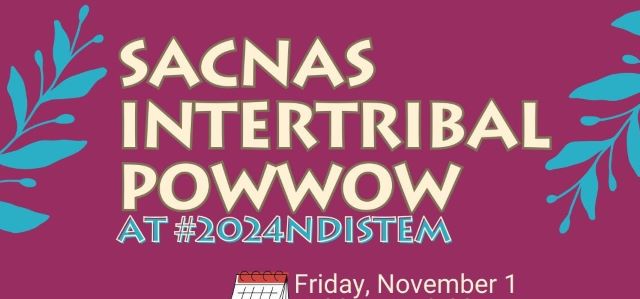
The 2024 National Diversity in STEM (NDiSTEM) Conference, organized by the Society for the Advancement of Chicanos/Hispanics and Native Americans in Science (SACNAS), celebrated Community College Day with a pre-conference event for all community college students on October 30.
This day-long summit provided students with the opportunity to explore various STEM fields through inspiring sessions, networking with STEM leaders, and accessing mentorship opportunities.
Community colleges enrolled 8.9 million students in the 2020-21 academic year, representing 41 percent of undergraduates.
The Community College Research Center analysis found that about 5.7 million students were enrolled in community colleges in the fall of 2021.
The beginning of November marked the final stretch of the conference, hosted by SACNAS.
Social media posts from influencers, community leaders, and STEM advocates showcased the highlights of the 2024 NDiSTEM Conference, which took place from October 31 to November 2.
These posts emphasized impactful moments and captured the excitement of cultural celebrations as the community continued to honor diversity, science, and each other during Native American Heritage Month (NAHM), a time dedicated to recognizing Indigenous voices and traditions.
According to social media, the first day of the 2024 NDiSTEM Conference set the stage for discussions and innovation.
During day two of the conference, attendees enjoyed powerful talks from four featured speakers, insightful poster presentations, and networking opportunities in the expo hall.
The day included learning-filled sessions and a vibrant evening at the Indigenous Marketplace and Powwow, making it a memorable experience.
The day began with Desiré Delia Whitmore, who started her education at a community college and holds degrees in physical sciences, chemical engineering, and chemical and material physics.
Whitmore taught conference participants how to harness their own “superpowers.”
Her research has focused on developing fast laser systems to study the vibrations of single molecules, the movement of electrons on metal surfaces, and the fluorescence of semiconducting quantum dots.
After completing her postdoctoral research, she wrote the K-8 science curriculum for Amplify Science, served as the director of the Laser and Photonics Technology program at Irvine Valley College, and is currently a staff physicist educator at the Teacher Institute at the Exploratorium in San Francisco.
Her current work is dedicated to providing support and professional development to middle and high school science teachers, helping them teach through inquiry while emphasizing equity and inclusion.
Dr. Naomi Lee is the founder and co-director of the Cultural and Academic Research Experience program, which encourages historically underrepresented high school students to pursue careers in STEM and health sciences.
She serves as a major in the Army Reserves and is currently assigned as a functional specialist to the 322nd Civil Affairs Brigade in Honolulu, Hawaii.
Previously, she was an officer in the Army National Guard.
Lee earned her bachelor’s degree in biochemistry from the Rochester Institute of Technology and went on to complete both her master’s and Ph.D. in chemistry at the University of Rochester.
She is now an associate professor in the Department of Chemistry and Biochemistry at Northern Arizona University (NAU).
Additionally, she is an affiliated faculty member with the Southwest Health Equity Research Collaborative, funded by National Institute on Minority Health and Health Disparities, the Native American Cancer Prevention partnership, and NAU’s Center for Materials Interfaces in Research and Applications. Her research focuses on vaccine design and addressing health disparities within Native American communities.
Jorge Jimenez shared his powerful testimony about staying true to his roots while transitioning in his career.
Jimenez is an award-winning biomaterials researcher who developed drug delivery systems for rare eye diseases and earned his PhD in bioengineering from the University of Pittsburgh in 2021.
Abigail Echo-Hawk captivated the audience with her advocacy for Native health systems during COVID-19, demonstrating true courage in action.
The morning plenary of day three featured a moving speech from Joan E. Reede, who shared how her family instilled in her the strength to go against the grain, guiding her through multiple degrees and inspiring her commitment to advocating for opportunities for historically marginalized groups in STEM.
The conference also honored Dr. Eugene Stephane Mananga, the recipient of the Distinguished Mentor Award, for his dedication to uplifting the next generation of diverse scientists.
Congratulations were also extended to Dr. Joseph L. Bull, recognized for his groundbreaking contributions to research.
The service of Presidential Award winners Dr. Martha I. Dávila-García and Dr. Joseph Hibdon was celebrated, acknowledging their dedication and impact in advancing diversity and inclusion within STEM.
Dr. Dávila-García is a former board member, treasurer, and chair of multiple board committees, while Dr. Hibdon has served as a longtime chair and member of the chapter subcommittee.
The 2025 conference will reconvene in Columbus, Ohio.
The U.S. Army Corps of Engineers has been tasked with…
Brown and Caldwell, a leading environmental engineering and construction firm,…
Humboldt State University, one of four campuses within the California…